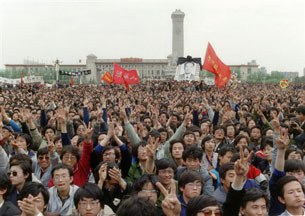Myanmar military court sentences young man to death by hanging
A 24-year-old man has been sentenced to death by hanging by the Tachileik District Court in Myanmar’s eastern Shan State, sources close to the court told RFA. Aik Sai Main, an ethnic Wa from Waine Kyauk Ward, Tachileik city, was arrested by police along with 21-year-old Htin Lin Aung on suspicion of bombing a pro-military rally on Feb. 1 this year. Four months later, the junta-run Tachileik District Court sentenced him on Wednesday to death by hanging under Section 54 of the Anti-Terrorism Law and Section 368 (1) of the Criminal Procedure Code, according to a source familiar with the court proceedings who did not want to be named for safety reasons. “It is true that he was sentenced to the death penalty by hanging. We investigated that in the District Court,” the source told RFA. “Family members could not come to the venue. They will be so upset. We ethnic groups are saddened by the junta’s arbitrary arrests and verdicts without any evidence.” Htin Lin Aung was sentenced to seven years in prison on Thursday under Section 52 (a) of the Anti-Terrorism Law. The bomb blast near a military rally in Tachileik on Feb. 1 killed four people and wounded more than 30 others. The bombing came exactly one year after a military coup against an elected civilian government which prompted mass protests, and then escalating violence across the country after the military used extreme force to quell the protests. In the past, the death penalty imposed by the junta has been based mainly on anti-terrorism laws. This is the first case of its kind since the coup to include Section 368 (a) of the Criminal Procedure Code which imposes death by hanging. Section 54 of the Anti-Terrorism Law, which was handed down at the trial, provides for a minimum sentence of 10 years and maximum sentence of life imprisonment or death. Section 368 (a) of the Code of Criminal Procedure stipulates that when the death penalty is given the person must be executed by hanging. A lawyer who declined to be named for security reasons described the verdict as a harsh sentence, noting that Section 368 (a) of the Criminal Procedure Code allows an appeal. “It gives the right to appeal to the Supreme Court within seven days, whether the sentence is death or death by hanging. Even if the family does not appeal, the prison authorities can appeal on behalf of the victim. Section 368 (1) of the Code of Criminal Procedure stipulates that the death penalty must be imposed by hanging until death.” Military council spokesman Maj. Gen. Zaw Min Tun told a press conference in the capital Naypyidaw on Wednesday the death penalty was a just punishment. Legal experts have criticized the junta for threatening the public with unfair executions. A total of 115 people, including Aik Sai Main, were sentenced to death between Feb. 1, 2021, and May 19, 2022, according to data compiled by RFA based on figures released by the military council. Last month Myanmar’s junta sentenced seven youths to death in the Yangon region after a secret military tribunal found them guilty of murder, a junta newspaper reported. According to Thai-based rights group Assistance Association for Political Prisoners (Burma) 13,926 people have been arrested between the start of the coup and June 2 this year. It says 10,870 people are still being held in detention while 3,035 have been freed and 21 released on bail. The group, founded by exiled former political prisoners, says 1,087 people were sentenced in person and 72 of those, including two children, were sentenced to death. Another 120 people were sentenced in absentia with 41 receiving the death penalty.




